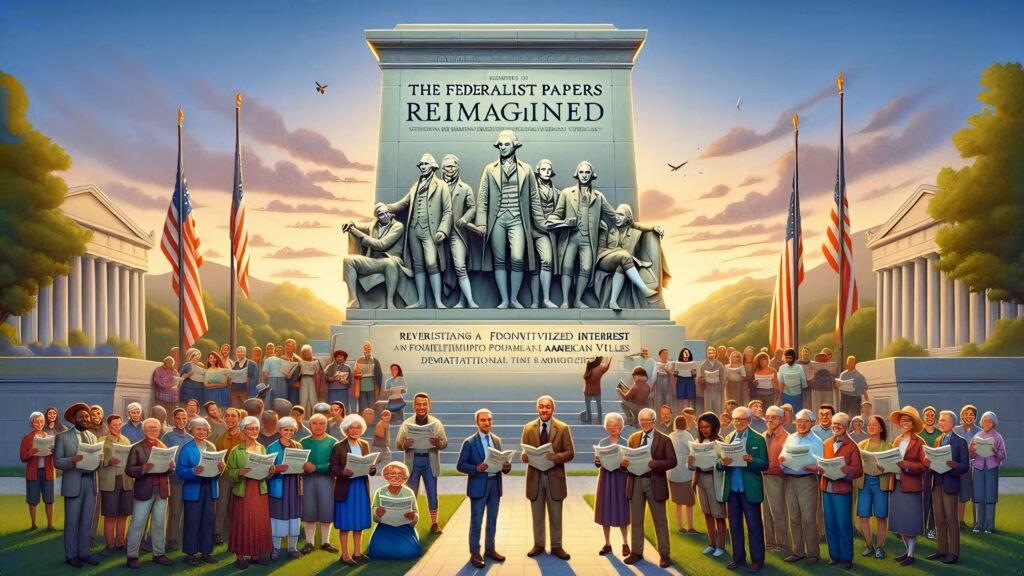In the pantheon of American political literature, few works hold a candle to the enduring significance of the Federalist Papers. These essays, penned under the collective pseudonym ‘Publius,’ were instrumental in shaping the discourse surrounding the ratification of the U.S. Constitution. Federalist No. 1, authored by Alexander Hamilton, serves not just as an introduction to this monumental series but as a clarion call for unity, rational discourse, and the adoption of a system capable of preserving the nascent nation’s liberty and independence. As we dive into Hamilton’s persuasive arguments and eloquent prose, we uncover the timeless wisdom that continues to resonate with and guide contemporary American society.

Analysis of Federalist No. 1
Alexander Hamilton’s Federalist No. 1 masterfully sets the stage for a comprehensive defense of the new Constitution proposed in 1787. Addressed to the citizens of New York, it outlines the critical decision facing the American people: the choice between adopting a new Constitution to replace the Articles of Confederation or facing potential disaster. Hamilton does not shy away from the gravity of the situation, stating unequivocally that the survival of an “united people” is at stake. He argues for a vigorous examination of the proposed Constitution, free from bias and predetermination, laying the groundwork for the essays that would follow.
Hamilton’s introduction is notable not only for its argumentative clarity but also for its appeal to the rational and informed judgment of the populace. He warns against the dangers of factionalism and the propensity for “cunning, ambitious, and unprincipled men” to obstruct the public good. His insights into human nature and political dynamics underscore a profound understanding of governance and the challenges inherent in forming a lasting union.
Historical Context
The period following the American Revolution was marked by turmoil and uncertainty. The Articles of Confederation, the first governing document of the United States, proved inadequate in addressing the nation’s challenges, including financial instability, interstate conflict, and the absence of a strong central authority. It was within this context of crisis that the Federalist Papers were conceived. Federalist No. 1, like its successors, aimed to address the skepticism surrounding the proposed Constitution, a document that sought to balance the delicate act of empowering a central government while safeguarding individual liberties and state sovereignty.
Hamilton, alongside Jay and Madison, embarked on a rigorous defense of the Constitution, addressing concerns and criticisms that had emerged. Federalist No. 1 introduces this endeavor, underscoring the significance of the decision at hand—not just for their contemporaries but for “the fate of an empire in many respects the most interesting in the world.” Hamilton’s foresight into the implications of this decision emphasizes the critical juncture at which the young nation stood, poised between fragmentation and unity, between failure and a future of unprecedented potential.

Contemporary Relevance
Fast forward to today, and the themes discussed in Federalist No. 1 remain strikingly relevant. The paper’s call for unity and informed debate echoes loudly in an era often characterized by polarization and the proliferation of misinformation. Hamilton’s caution against those who would manipulate public opinion for personal gain serves as a timely reminder of the need for vigilance and critical engagement with political discourse.
Moreover, Federalist No. 1’s emphasis on the importance of a robust yet balanced federal system has profound implications for modern governance. In an age where questions of federal authority versus state rights continue to provoke debate, Hamilton’s arguments provide a foundational perspective on the architecture of American government and the principles that should guide its evolution.
The paper also speaks to the enduring value of the Constitution as a living document, capable of adapting to the challenges of successive generations while maintaining the core ideals of democracy and liberty. This adaptability, championed by Hamilton and his contemporaries, underscores the genius of the Constitution and its capacity to serve as a stable yet flexible framework for governance.
The Lasting Legacy of Federalist No. 1
In Federalist No. 1, Alexander Hamilton laid down a gauntlet, challenging his readers to rise above partisan interests and consider the broader implications of their choices for the fledgling nation’s future. This challenge, and the broader discourse initiated by the Federalist Papers, fundamentally shaped the course of American history, securing the ratification of the Constitution and laying the groundwork for the United States’ development into a global powerhouse.
The legacy of Federalist No. 1 extends beyond its historical impact, serving as a beacon for the enduring principles of governance, the importance of informed public discourse, and the pursuit of a more perfect union. As contemporary Americans grapple with their own political challenges, Hamilton’s words offer guidance, inspiration, and a reminder of the responsibilities that come with citizenship in a democracy.
For readers young and old, familiar with the Federalist Papers or encountering them for the first time, Federalist No. 1 is not just a historical document but a living conversation. It invites us to engage with the ideas that shaped the nation and to contribute our voices to the ongoing dialogue about its future. In this way, the legacy of Federalist No. 1—and indeed, all the Federalist Papers—continues to resonate, echoing the voices of liberty that have defined America from its inception.
